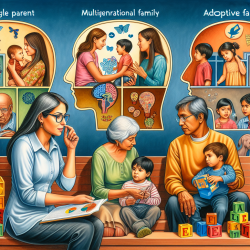Introduction
Chagas disease, caused by the parasite Trypanosoma cruzi, poses significant health risks to Latin American immigrants in the United States. Despite the availability of treatment, barriers such as lack of awareness, economic limitations, and cultural beliefs hinder effective healthcare access for this population. A recent study titled "Barriers to Testing and Treatment for Chagas Disease among Latino Immigrants in Georgia" sheds light on these challenges and offers insights for healthcare practitioners to enhance their approach.
Understanding the Barriers
The study identifies several key barriers to testing and treatment:
- Lack of Awareness: Many Latino immigrants are unaware of Chagas disease, its symptoms, and the importance of testing. This lack of knowledge reduces motivation to seek medical attention.
- Economic Limitations: High healthcare costs and lack of insurance deter many from seeking treatment. This is compounded by the fear of losing income due to time taken off work.
- Cultural Beliefs: Traditional remedies and stoicism often precede seeking professional healthcare. Fear of a fatal diagnosis or expensive treatment further discourages seeking medical help.
- Quality of Care Concerns: Distrust in mainstream healthcare providers due to perceived discrimination and inefficiency affects healthcare-seeking behavior.
Strategies for Practitioners
Healthcare practitioners can play a crucial role in overcoming these barriers by implementing the following strategies:
- Educational Outreach: Increase awareness about Chagas disease through culturally sensitive educational campaigns. Utilize community networks and trusted local figures to disseminate information.
- Cost-Effective Healthcare Solutions: Advocate for and provide access to low-cost or free healthcare services. Mobile clinics can be particularly effective in reaching rural populations.
- Cultural Competency Training: Enhance healthcare providers' understanding of Latino cultural beliefs and practices. This can improve patient-provider communication and trust.
- Partnerships with Community Organizations: Collaborate with local organizations to build trust and facilitate healthcare access. These partnerships can help bridge the gap between traditional and mainstream healthcare practices.
Encouraging Further Research
While the study provides valuable insights, further research is needed to explore the effectiveness of different intervention strategies across diverse Latino communities. Practitioners are encouraged to participate in or support studies that aim to refine healthcare delivery models for this population.
To read the original research paper, please follow this link: Barriers to Testing and Treatment for Chagas Disease among Latino Immigrants in Georgia.










